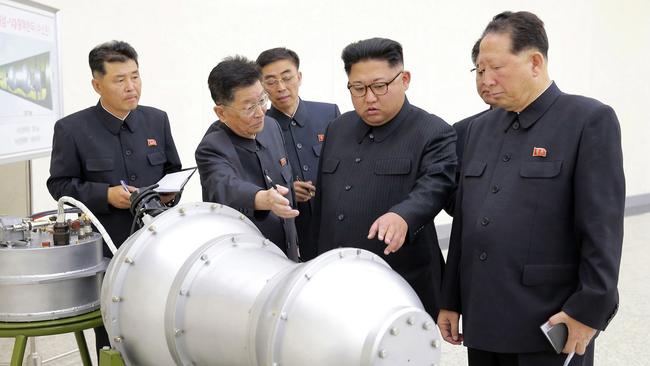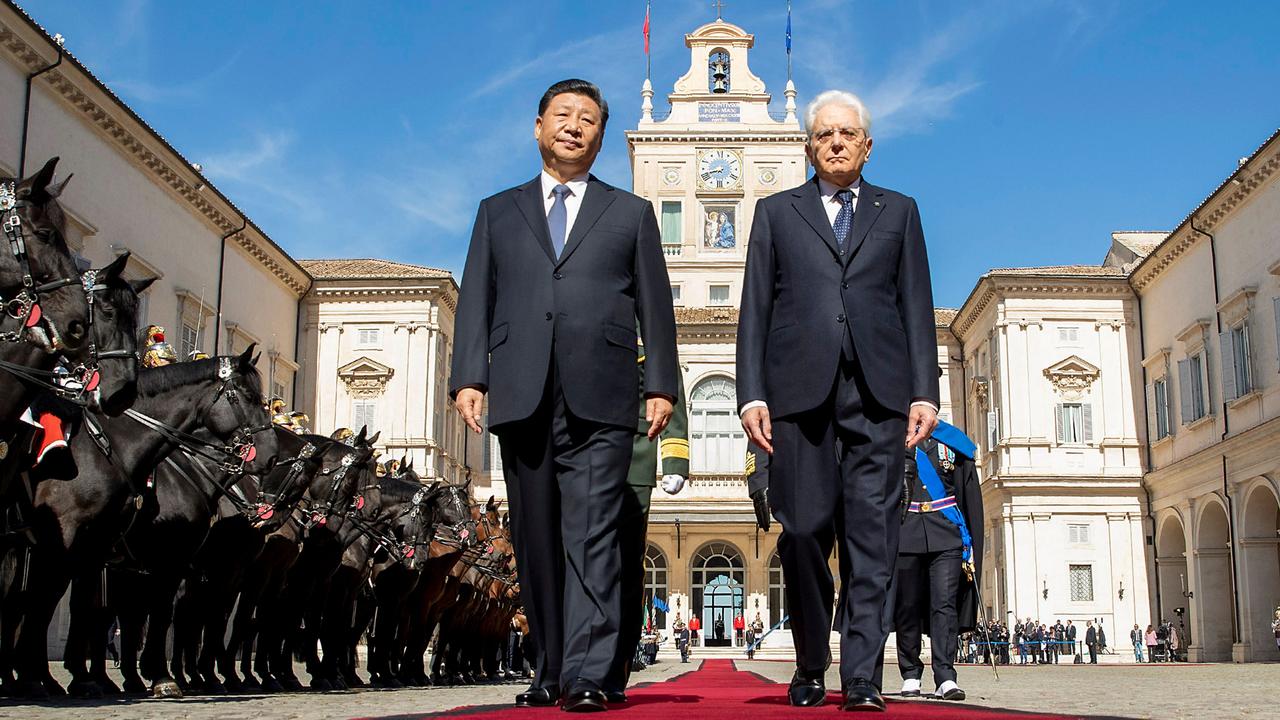
The betting odds are in favour, but with the agreed approach resembling more closely that sought by China’s President Xi Jinping, who will by then have emerged with enhanced authority from his Communist Party’s 19th national congress.
The likelihood of Trump orchestrating any move towards defusing the North Korea crisis has never been great, but was undermined further by his tweet informing the world he had told “our wonderful Secretary of State” — pause for full sarcastic effect — “that he is wasting his time trying to negotiate with North Korea”. If Trump is so prepared to trumpet his resounding disagreement with Rex Tillerson, there’s next to no chance he can locate common ground with his allies in the region, let alone with China, whose agreement is crucial for any progress.
Trump’s tweet effectively undermined Tillerson’s whole visit to the region last week to prepare for the President’s participation in the annual round of East Asia and APEC summits. “Save your energy, Rex, we’ll do what has to be done!” Trump told him, publicly dealing the State Department out of international relations.
It looks as if Kim Jong-un’s persistent belligerence has succeeded in bifurcating Washington’s policymakers.
Veteran professor at the University of NSW at the Australian Defence Force Academy Carl Thayer notes more than eight months have passed and no Trump national security strategy has emerged.
He said it remains unclear how the Asia-Pacific region will fit into Trump’s three priorities — defeating Islamic State, halting North Korea’s nuclear proliferation and renegotiating trade agreements.
Xi clearly also finds coping with Kim nightmarish, but his worst nightmares are different from Trump’s. They are of entropy on the Korean peninsula, with refugees pouring over the border, mass starvation of a neighbour looming, nuclear weapons and missiles going missing — all challenges for a China Xi has championed as the new power in the region.
The many dangers have driven South Korea’s President Moon Jae-in closer to Japan’s Prime Minister Shinzo Abe, who will at the October 22 election either emerge even stronger or lose — unlikely — to Tokyo Governor Yuriko Koike.
Moon and Abe have sought upgraded US anti-missile systems, to China’s chagrin because it believes the associated radar can scan its own military preparedness. Chinese commentators are also expressing concern the countries may swiftly arm themselves with nuclear weapons, easy enough to do with their technological capacity and wealth — or they will allow the Americans they host to be equipped with tactical nuclear weapons.
It would be difficult to demur with Trump’s assertion last month that the North’s provocative actions have drawn allies South Korea, Japan and the US closer together in terms of defence posture. Yet it’s not so clear whether they agreed to a joint approach to resolving the North Korean dilemma.
Moon and Abe have suffered jarring attacks on their core economic strategies from Trump — who wants to renegotiate or dump the US free-trade agreement with South Korea, and jettisoned the Trans-Pacific Partnership on which Abe pinned so much hope. They must fear that the minute they slip from the front of Trump’s mind, he may be more prone to making decisions on North Korea that imperil rather than protect them.
Zhao Minghao of Beijing’s Renmin University says from China’s perspective, sanctions are not the aim, and military strikes are not the solution. “When you hold a hammer in your hand, every problem looks like a nail.”
It’s not entirely clear what the solution is, but it’s only likely to come through negotiation — as Tillerson has consistently stated, despite the boss’s disagreement.
Missile defence remains incredibly uncertain: the Pentagon likens it as trying to hit a bullet with a bullet. The pre-emptive strike scenario has been well rehearsed, with no credible analyst prepared to anticipate fewer than scores — most say hundreds — of thousands killed among US allies, thus also killing US influence in Asia and handing it to China.
Andrei Lankov, a professor at Kookmin University in Seoul, says as US leaders show off their rhetorical skills and pass one tough — and useless — sanctions legislation after another, North Korean engineers and scientists will produce more dangerous missiles more difficult to intercept and able to deliver more powerful strikes.
While admitting it is flawed and imperfect, he advocates “a freeze deal” as the only viable option — an agreement through which North Korea will restrain from conducting further tests in exchange for political concessions and financial aid as the first step on the “long and winding road to denuclearisation”.
This is the kind of deal that could be on the table when Trump comes to Beijing. If Xi could find a way to let Trump share the credit, it may work.
But if Kim and Trump, those true-life versions of a Mike Myers/Austin Powers spoof, insist on maintaining instead their mutual insults and threats routine, all bets are off.




What is the chance of a coherent international approach to North Korea emerging from Donald Trump’s tour through east Asia early next month?